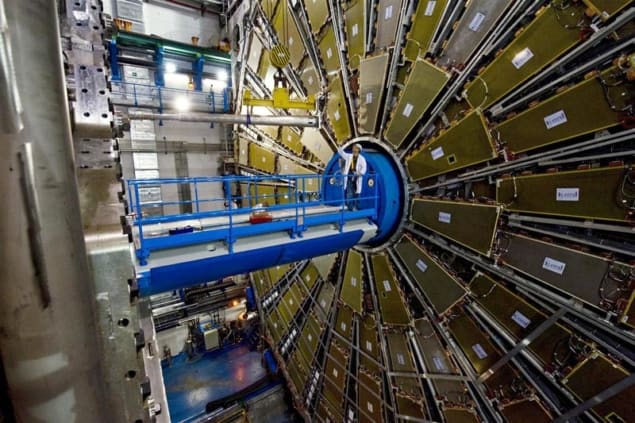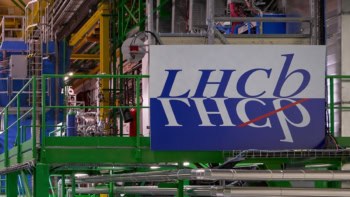
The CERN particle-physics lab near Geneva is to cut around CHF330m (€250m) from its budget for 2011–2015. The cut, which was announced by CERN boss Rolf-Dieter Heuer yesterday, will require the lab to scale back research into future particle accelerators. However, Heuer insists that the reduction will not affect the operation of the Large Hadron Collider (LHC) or force CERN to lose any of the 2000 or so staff it currently employs. CERN’s council is expected to meet on 16 September to approve the new plan.
The €250m cut is most likely to hit future upgrades and accelerators, which will now “proceed at a slower pace”. Also cut in the new budget – dubbed the medium-term plan – is the operation of CERN’s accelerators during the planned year-long shutdown of the LHC in 2012 when it will then prepare the LHC to go straight to maximum-energy 14 TeV collisions. A few accelerators were planned to be used during the shutdown period to study new detector techniques, but under the new plan all of CERN’s accelerators will now not operate in 2012.
“All our member states are making significant budget cuts at the national level, and it is difficult to argue why intergovernmental organizations such as CERN should be exempt,” says Heuer in a memo to staff. “I firmly believe that basic science budgets must be protected even in, and perhaps particularly in, times of economic downturn. But as a publicly funded body, we have to be realistic.”
Future plans
Worst hit could be work on the Compact Linear Collider (CLIC) – CERN’s own blueprint for a future electron–positron collider – that could be built once the LHC reaches the end of its life. Although research on CLIC and a “higher-energy proton machine” will continue, CERN’s contribution to CLIC will be held at around €16m and not be increased as was previously proposed. “In the present financial and political climate, I think it was inevitable that CLIC would be among the programmes to suffer,” particle theorist John Ellis told physicsworld.com.
Ellis told physicsworld.com that resources already made available by CERN will, however, allow an upgrade to the CLIC test facility to go ahead. But the budget cut means that an engineering demonstration facility called CLIC0, which would have to be built before CLIC could be approved, will not now go ahead unless external funds are sought. CLIC0 is supposed to demonstrate beam acceleration to around 6.5 GeV.
Ellis notes that the recent decision to open membership to CERN to countries outside Europe could mean that the extra funds are instead provided by these nations.
Belt tightening
“The cuts at CERN are very depressing news,” says Tim Gershon, a particle physicist from Warwick University in the UK who works on the LHCb experiment at CERN. “Although CERN’s management has succeeded to find a way to make the savings without any permanent scientific loss, the productivity of the laboratory will be significantly slowed.”
Others, however, are taking the news as an expected consequence of countries around Europe tightening their belts. “In the current financial climate these cuts are not unexpected and while they will slow down some of the longer-term projects they will not put in jeopardy any of CERN’s scientific objectives,” says Mark Lancaster, a particle physicist from University College London who works on the Compact Muon Solenoid detector at the LHC.



